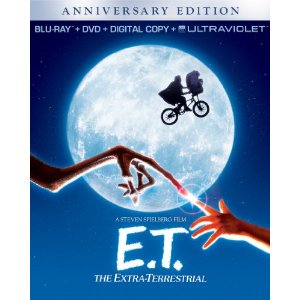Aeon Flux
Posted on December 4, 2005 at 3:31 pm
Maybe it’s just that my expectations were so low because it was not screened for critics (meaning the studios did not think they would get even one good review), but “Aeon Flux” was not so bad. A little boring, yes, especially in the middle section, a little silly and pretentious, yes, we could have done with a little Serenity-style attitude (and especially some Serenity
-style dialogue). But we’ve got repressive bad guys and rebel forces, guns, explosions, stunts, some very cool special effects, and Charlize Theron in a skin-tight black outfit low in the front and laced up down the back. There are worse ways to spend a couple of hours at the movies. So when it comes to atrocious Oscar-winners-turned-iconic-action-heroines movies go,
Aoen (pronounced EE-on) Flux (Theron) lives in a small, walled-in community 400 years in the future. They are the only humans on earth following a devastating virus that wiped out 99 percent of the population. A doctor named Goodchild discovered a cure for the virus and his desendents still control the community. On its surface, it seems idyllic, but the Goodchild regime is oppresive. There are secrets, including the whereabouts of people who just disappear.
Flux says “I had a family once. I had a life. Now all I have is a mission.” Her family has been killed, and she has devoted herself to the rebel forces, which communicate via pills that sort of psychically transport them to a glowing white chamber where they appear before their leader (Frances McDormand with red hair that looks like she stuck her finger in a light socket).
Aeon and her hand-footed (yes, she has hands for feet) pal Sithandra (Sophie Okonedo of
But when Aeon sees Goodchild, she hesitates. He seems to know her. She seems to know him. And he seems not to be the bad guy she thought.
It turns out that both Aeon and Goodchild have more to fear from their friends than their enemies. It also turns out that this perfect on the outside-fascist on the inside society has some secrets to reveal.
On the road to all of these discoveries are some showy stunts and action sequences involving swoopy summersaults and slo-mo running. This is one of those perfect on the outside-fascist on the inside societies where everything happens in huge, cavernous spaces for no particular reason except that it’s a cool setting. They don’t seem to have phones; when they aren’t communicating via telepathic pills, they use a sort of directory assistance that’s a computer voice accessed while standing in a huge empty room the size of a cathedral.
All of this sounds like fun to watch, and it is. But there are three significant problems that keep it from working. First, it never finds the right tone. It takes itself too seriously to be fun but does not have enough complexity to be meaningful. It needs wit and attitude badly. This takes us to problem number two: cardboard dialogue of the “Let’s be careful. You know what we’re up against” genre. It does no good to create a visually arresting scene (even with a very visually arresting leading lady) if you’re going to weigh it all down with talk like that. All of this means that there’s a long dull stretch through the middle — problem number three. It’s not a bad time-waster, especially for fans of the genre, and Theron’s lithe dancer’s body and hurt-but-determined expression and some well-staged stunts are quite watchable, but — trying to avoid a spoiler here, so stop reading if you want to be surprised — ultimately it suffers from the same lack of originality as its characters.
Parents should know that this movie has a great deal of comic book-style action violence including guns and explosions. Characters are shot, punched, stabbed, kicked, and impaled and some are injured and killed. There are some graphic injuries and a couple of gross moments. There is a non-explicit sexual encounter. A strength of the movie is its portrayal of diverse characters, including very strong women.
Families who see this movie should talk about the ethical concerns involved in the choices made by Goodchild and his brother. What do the names tell you about the characters?
Families who enjoy this film will also enjoy the Aeon Flux animated series as well as the Matrix
series, and other dystopic future sagas from Soylent Green
to Blade Runner
.

